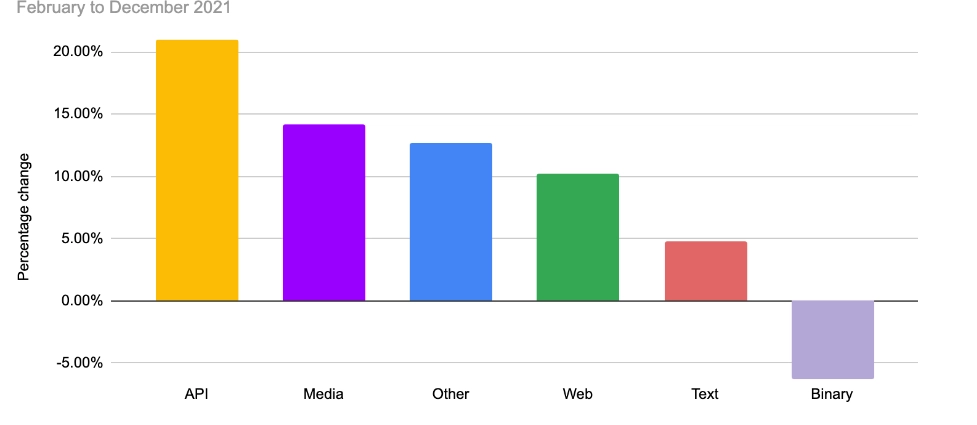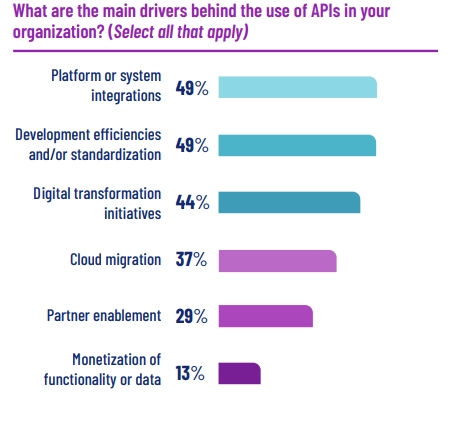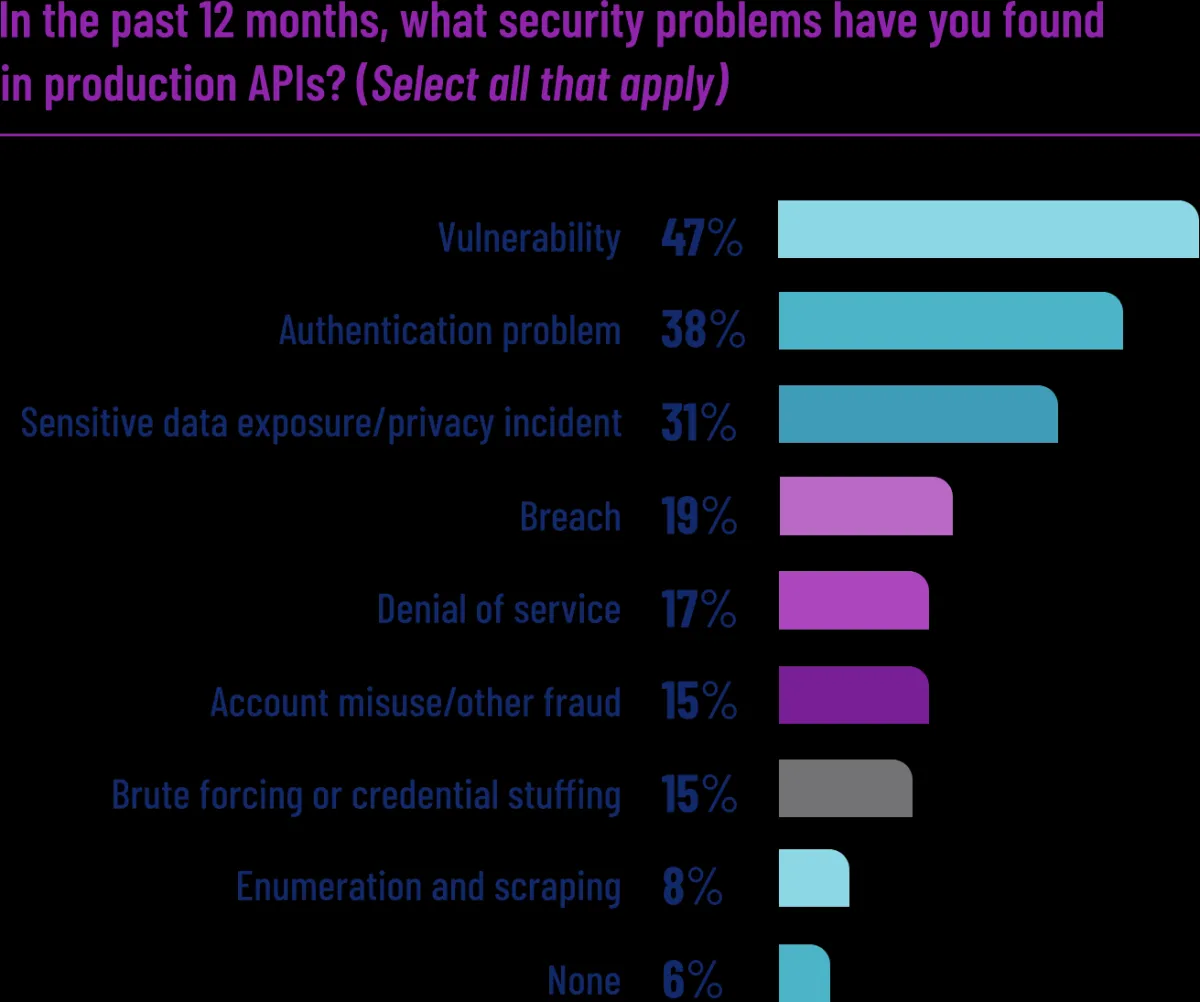APIs can integrate with new technologies such as IoT and chatbots. We cover 17 API-related statistics to provide a comprehensive picture of the trends and landscape of APIs.
General API statistics
- The fastest-growing type of data in 2021 was API data which grew by more than 20% (see Figure 1). ( Cloudflare)
Figure 1. Growth of different data types

Source: Cloudflare
- POST method is the most common method used in APIs, with more than 50%, followed by GET method, with almost 45%. (Cloudflare)
- More than 90% of executives indicate APIs as mission-critical. (Rapid API)
- API brokerage has been experienced by almost 40% of users. (Statista )
- The market capitalization of companies that have adopted APIs has grown by more than 12% compared to those that have not adopted APIs. (Forbes)
- Almost 50% of responders indicate :
- Platform or system integrations,
- Development efficiencies and/or standardization
as the main factors behind adopting APIs in their organization( see Figure 2). ( Salt)
Figure 2. The main factors behind using APIs in organizations

Source: Salt
API Security
- 94% of responders to a survey indicated that they had experienced API security problems ( see Figure 3). (Salt)
Figure 3. Security problems faced in API production

Source: Salt
- More than 50% of companies have postponed the release of a new API due to security concerns. (Salt)
- Only 11% of companies have a plan for API security, including specialized API testing and protection. (Salt)
API statistics in industries
Finance
- More than 1 billion API calls were made in May 2022 to open banking APIs. (Open Banking)
- The number of API calls made by the financial sector experienced a 125% growth in 2020. (Google Cloud)
- The number of APIs deployed in the banking sector is anticipated to increase by 100% from 2022 to 2027. (McKinsey)
- 48% of FinTech companies indicate API security as a top concern in API utilization. (FinTech Future)
Retail
- The retail and travel industry had the most API calls made in 2020, with 34%. (Google Cloud)
- More than 50% of retailers have indicated that APIs accelerate innovation, and 36% indicated that APIs are a strategic asset that can create business value. (Google Cloud)
Further Reading
Many industries have adopted APIs to increase their digital transformation, such as:
Follow the each link to read more about them.

Comments
Your email address will not be published. All fields are required.